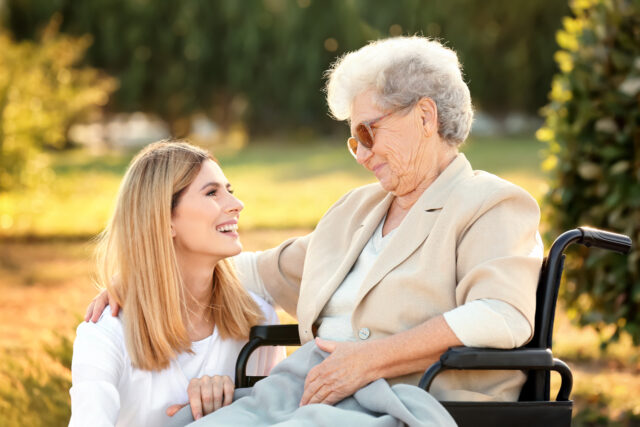
Paid Sick Leave Helps Older Workers, Who Need it Most
It’s common for older workers to develop an acute medical problem requiring immediate attention or to have a spouse or parent who suddenly becomes ill and must be cared for.
Paid sick leave provides the flexibility for short periods to cope with the medical and caregiving demands that crop up more frequently as people age. A new study confirms these policies are very effective in helping older workers in particular maintain their level of employment while they get through a crisis.
Providing paid sick leave is a fairly common practice in this country. A majority of workers already have access through their employee benefits. Over the past decade, a growing number of state and local governments have also mandated paid leave for workers in the hospitality industry, healthcare sector or other occupations that don’t provide the employee benefit to a lower-income workforce.
These policies act as a backstop for older workers so they don’t have to reduce their hours or quit full-time jobs to deal with a health crisis, which would jeopardize their retirement finances at a crucial time. Stopping work can prematurely put an end to their retirement saving or force them to start their Social Security benefits sooner than they’d planned.
But research by Meredith Slopen at the CUNY Graduate Center shows that Americans in their 60s who have access to paid sick leave at work are significantly more likely to work full-time than workers their age who lack paid sick leave.
Consistent with full-time work, people over 65 with paid sick leave also work more – nine hours more per week than people their age who do not have the employee benefit. At ages 62 to 64, access to paid leave adds at least seven additional hours per week. Paid leave is also associated with more hours worked among employees in their prime working years but to a lesser extent.
The pattern carries over to older Black workers too. They tend to have poorer health than White workers their age. But Slopen found that they work more if they have the paid leave.
This benefit isn’t a solution for long-term caregivers, often women, who take care of an older spouse or elderly parent. Other policies like paid family and medical leave have an important role to play in response to caregivers’ longer-term needs. But paid sick leave – possibly because of the job security aspect of it – does help them handle shorter-term caregiving duties such as taking a family member to the doctor or getting them through a health crisis. Older women who have paid sick leave also work more hours than women who lack the benefit, the researcher found.
“Access to paid sick leave may play a role in facilitating the ability of older workers – and particularly women – to remain employed at full-time levels,” Slopen concluded.
To read this study by Meredith Slopen, see “Does Access to Paid Sick Leave Facilitate the Employment Intensity of Older Workers?”
The research reported herein was performed pursuant to a grant from the U.S. Social Security Administration (SSA) funded as part of the Retirement and Disability Research Consortium. The opinions and conclusions expressed are solely those of the authors and do not represent the opinions or policy of SSA or any agency of the Federal Government. Neither the United States Government nor any agency thereof, nor any of their employees, makes any warranty, express or implied, or assumes any legal liability or responsibility for the accuracy, completeness, or usefulness of the contents of this report. Reference herein to any specific commercial product, process or service by trade name, trademark, manufacturer, or otherwise does not necessarily constitute or imply endorsement, recommendation or favoring by the United States Government or any agency thereof.
Comments are closed.







Older workers have trouble getting hired. A paid sick leave mandate would make employers even more wary of hiring older workers